Smart Analytical Development for Complex Molecules
Our in-house analytical laboratory has more than a support function; it’s a core pillar of our capabilities as a CDMO. With over three decades of pharmaceutical expertise, it delivers analytical solutions that are scientifically rigorous, regulatory-compliant, and tailored to the unique needs of small molecule drug development.
The analytical laboratory at Groupe PARIMA supports every stage of the product lifecycle, from pre-formulation studies to commercial release. Our team applies technical expertise and a quality-by-design approach to ensure that every method, test, and data set contributes to the product’s safety, efficacy, and regulatory compliance.
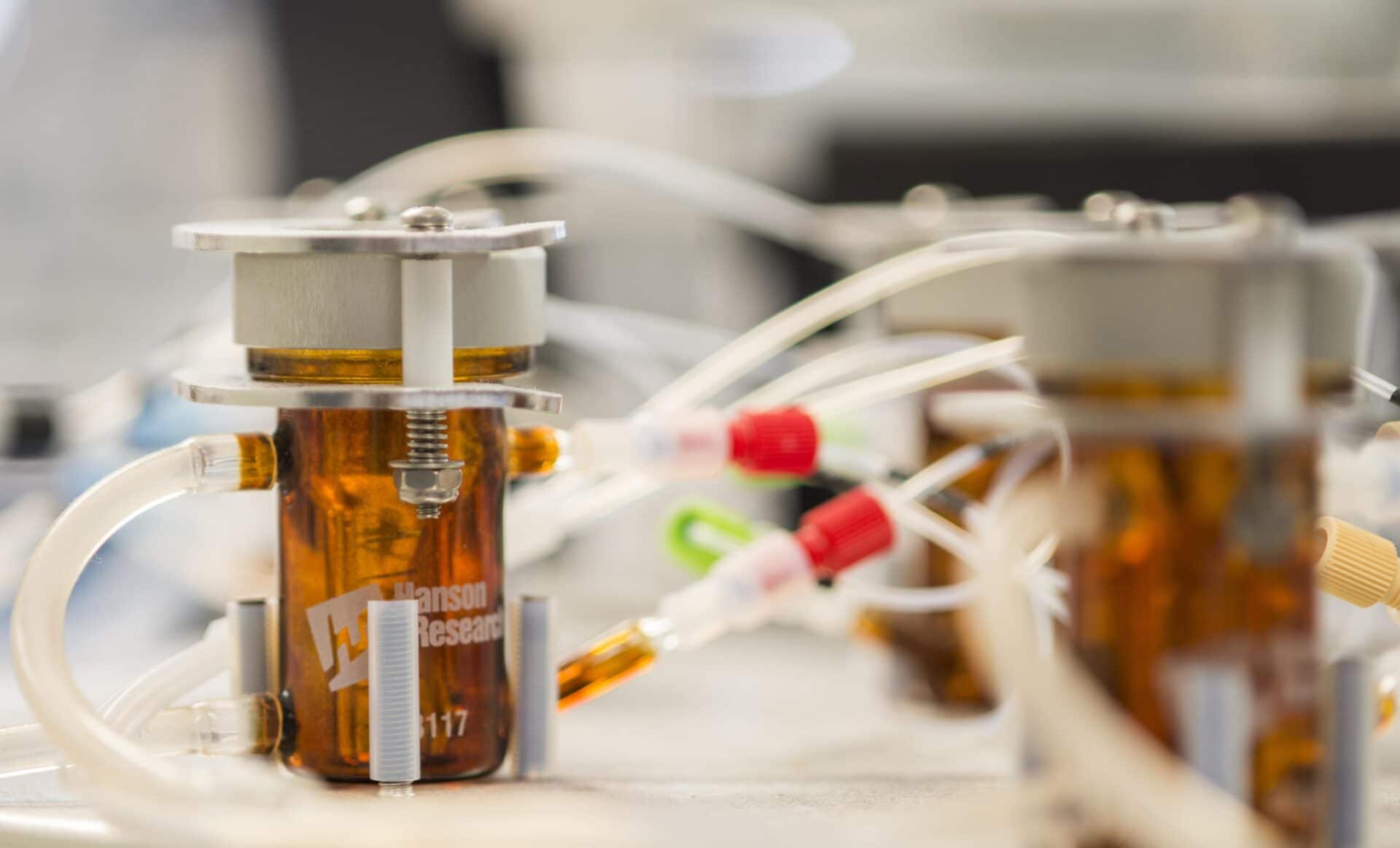
Comprehensive Analytical Development Capabilities
Our team of analytical chemists and microbiologists plays a critical role in supporting pharmaceutical development and manufacturing. We collaborate closely with clients to ensure that analytical development activities, especially those related to long-term and accelerated stability studies, are seamlessly integrated into formulation development, scale-up, and commercial manufacturing.
By generating reliable, regulatory-ready data, our laboratory helps ensure that products maintain their safety, efficacy, and quality throughout their shelf life. This stability-focused approach is crucial for meeting global regulatory standards and supporting correct product registration and lifecycle management.
Whether developing new analytical methods, transferring an existing one, or executing long-term stability programs, our laboratory operates with the precision and reliability required by today’s complex drug formulations.
Analytical Development for Every Stage of Formulation
Our scientists bring extensive expertise in designing, optimizing, and validating analytical methods for chemical and microbiological testing. Whether developing methods from first principles or adapting existing protocols to new products and processes, we ensure scientific rigor and regulatory alignment throughout. Our capabilities include:
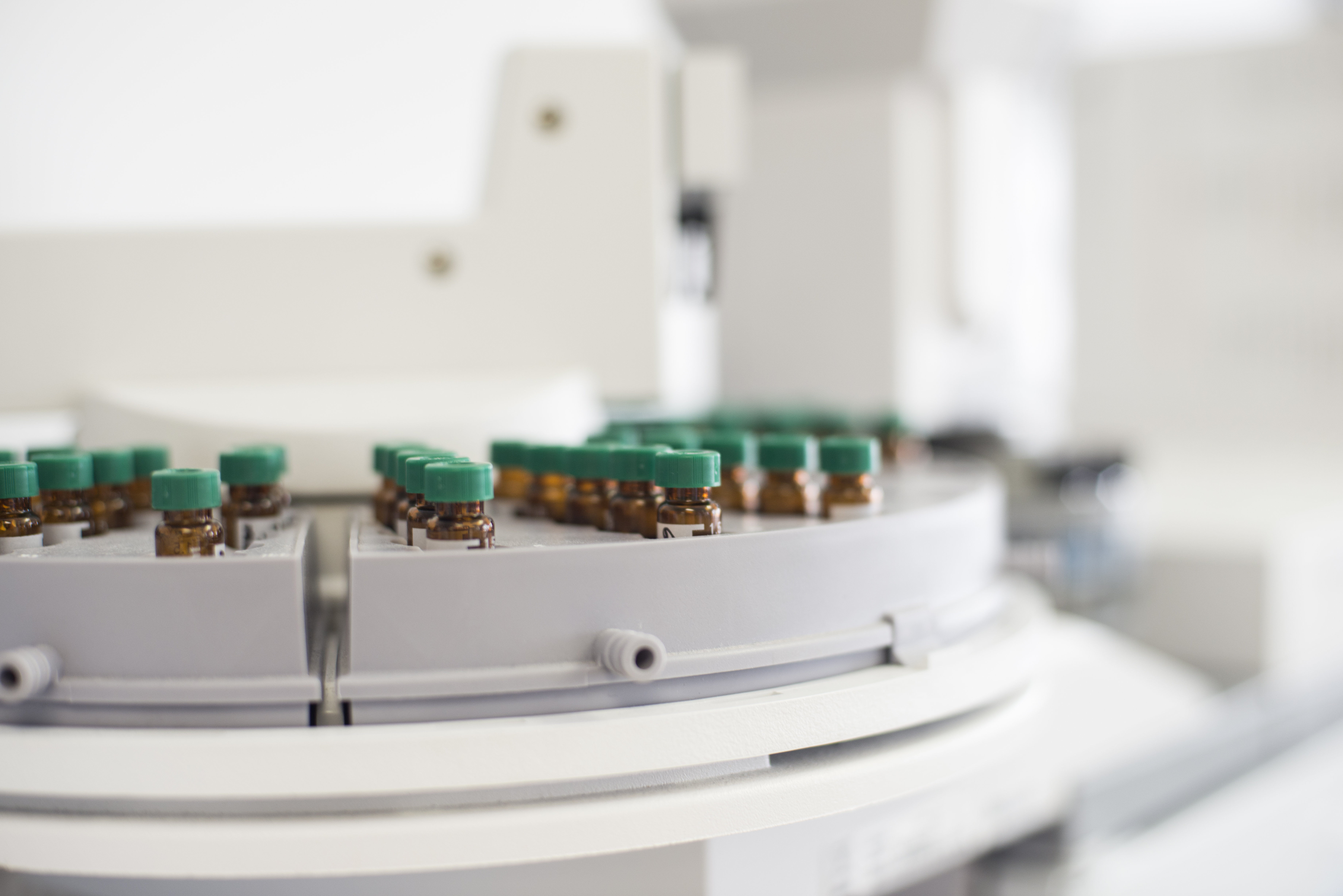
- Method Development: Custom analytical methods tailored to the unique physical and chemical properties of each product, enabling precise characterization and reliable performance.
- Forced Degradation Studies: Evaluation of product stability under stress conditions to support development of stability-indicating methods and confirm specificity.
- Method Validation: Comprehensive validation in accordance with ICH guidelines, assessing accuracy, precision, specificity, linearity, range, and robustness.
- Method Transfer: Seamless transfer of analytical methods between sites or partners, ensuring reproducibility, traceability, and data integrity.
- Pharmacopoeia Method Verification: Verification of compendial methods to confirm suitability for specific products and ensure compliance with regulatory expectations.
In Vitro Release Testing (IVRT) for Semi-Solid Characterization
To support the development and control of semi-solid formulations, our teams have developed specialized expertise in IVRT using Franz diffusion cells and Enhancer cells. This technique provides us with critical data on drug release kinetics, supporting formulation development, regulatory submissions, and routine quality control.
- Method Development: We design IVRT protocols tailored to each formulation, with membrane selection and test conditions to simulate in vivo behavior and ensure relevance.
- Method Validation: Our IVRT methods are validated for accuracy, precision, reproducibility, and robustness, in alignment with regulatory standards and industry best practices.
- Routine Quality Control: Validated IVRT methods are integrated into QC workflows to monitor batch-to-batch consistency and ensure sustained product performance.
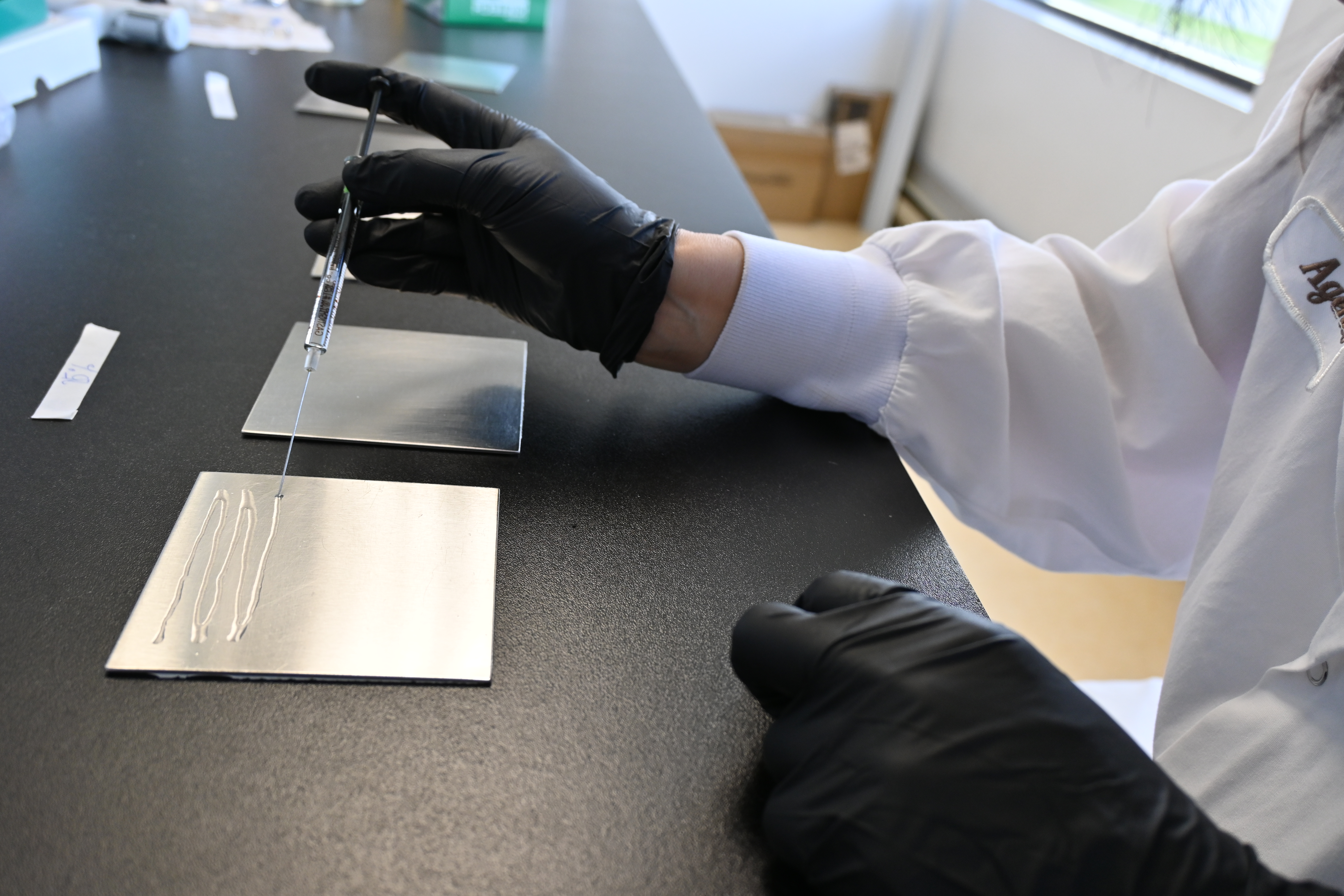
Quality Control Powered by Analytical Precision
Our Quality Control team applies validated analytical methods to ensure that raw materials, intermediates, and finished products consistently meet defined quality, safety, and regulatory standards. All testing is conducted under full GMP compliance and tailored to the specific requirements of each product and process.
- Assay and potency determination: quantitative analysis to confirm active ingredient concentration and ensure therapeutic efficacy.
- Acid/base titration: precise measurement of acidic or basic components to support formulation and stability assessments.
- Identification test by FTIR: Fourier-transform infrared spectroscopy for rapid and reliable compound identification.
- Related compounds and degradation profiling: detection and quantification of impurities and degradation products to support product safety and shelf-life evaluation.
- Residual solvents analysis (USP <467>): ensures residual solvents are within safe, regulatory-approved limits, supporting compliance and patient safety.
- Size exclusion chromatography (SEC): characterizes molecular size distribution and detects aggregates, critical for complex formulations.
- Dissolution testing: evaluates drug release profiles to predict bioavailability and support product performance claims.
- Viscosity and basic rheology: characterization of flow properties to ensure consistency and performance of semi-solid and liquid formulations.
- pH measurement: monitoring of formulation acidity/alkalinity to support stability and compatibility.
- Water content by Karl-Fisher titration: accurate quantification of moisture levels, essential for product stability and shelf-life.
- Particle size distribution: analysis via microscopy and laser diffraction to ensure uniformity and optimize delivery characteristics.
- Droplet size analysis for metered-dose sprays: assessment of spray performance and particle dispersion for nasal and sub-lingual products.
- Density and specific gravity: measurement of mass-to-volume ratios to support formulation design and quality control.
- Deliverable volume and weight loss: evaluation of product delivery efficiency and packaging integrity.
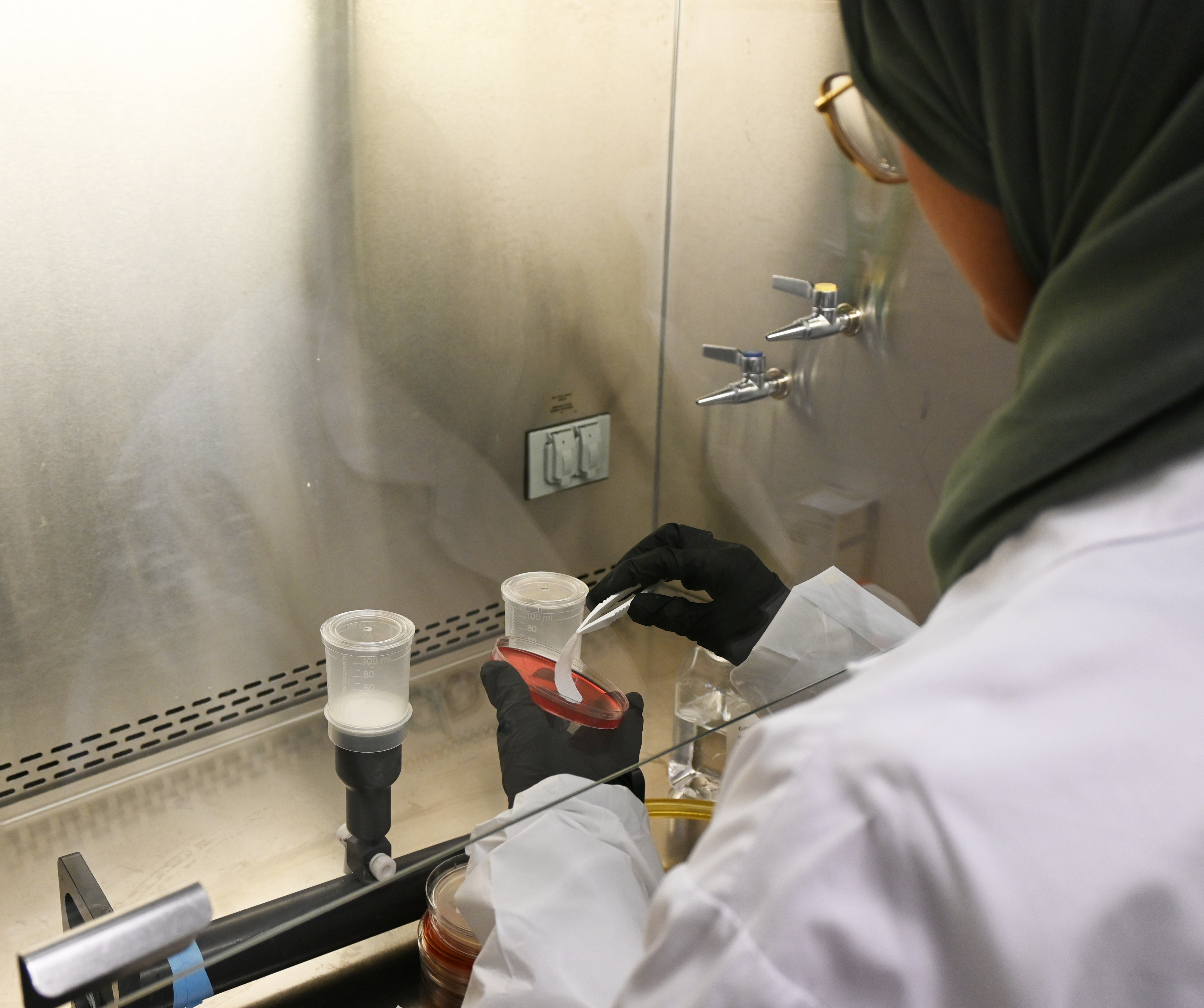
Microbiological Testing That Meets Every Standard
Our microbiology laboratory ensures that products meet stringent microbial quality standards through validated methods and full GMP compliance. These services are crucial for ensuring compliance with pharmacopeial requirements and maintaining product integrity. Our core microbiological capabilities include:
- Measure aerobic bacteria in accordance with USP <61> and EP 2.6.12 to assess overall microbial load.
- Quantify yeast and mold levels using USP <61> and EP 2.6.12 to ensure product safety and shelf-life.
- Screen for objectionable microorganisms as defined in USP <62>, USP <60>, and EP 2.6.13, based on dosage form and intended use.
- Identify microbial isolates to support contamination investigations and corrective actions.
- Confirm preservative system efficacy in multi-dose products in accordance with
Stability Studies That Strengthen Shelf Life Confidence
Our on-site stability chambers support comprehensive studies designed to evaluate product shelf life, storage conditions, and long-term quality under ICH-recommended and custom protocols. All studies are conducted under controlled conditions with full traceability and documentation to meet regulatory expectations
- Long-term: 25°C / 60% RH
- Long term (25°C/60%RH)
- Intermediate (30°C/65%RH)
- Zone IV-B (30°C/75%RH)
- Accelerated (40°C/75%RH)
- Cold-chain products (2-8°C)
- Intermediate: 30°C / 65% RH
- Zone IV-B (High Humidity): 30°C / 75% RH
- Accelerated: 40°C / 75% RH
- Cold-chain: 2–8°C
- Temperature Cycling and Freeze-Thaw: Evaluate product robustness under fluctuating thermal conditions to simulate real-world handling.
- Shipping and distribution simulation studies: assess product stability under transport-related stressors, including vibration, temperature shifts, and humidity changes.
- -20°C conditions for highly sensitive products
Instrumentation That Supports Scientific Integrity
Our analytical laboratory is equipped with a comprehensive suite of advanced instrumentation, enabling us to deliver precise, reproducible, and regulatory-compliant testing across a broad range of pharmaceutical analyses. Our investments reflect our commitment to scientific rigor and our ability to support complex drug formulations with high analytical reliability. Here are our key capabilities:
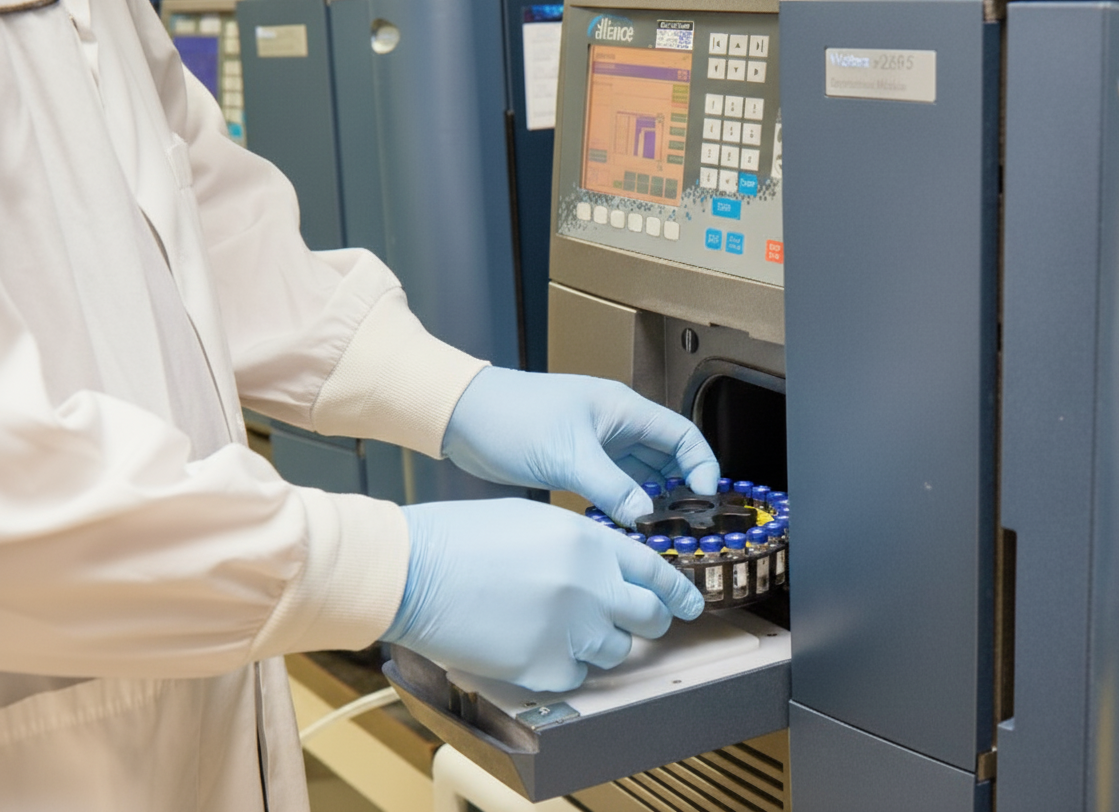
- Chromatography: All chromatography instruments operate under Waters Empower 3 software, ensuring robust data integrity and full regulatory traceability.
- Gas and liquid chromatography.
- Agilent and Waters HPLCs and UPLCs.
- Agilent GC with headspace.
- Waters LCMS for advanced molecular analysis.
- Dissolution apparatus for drug release testing.
- A wide range of Brookfield viscometers for rheology and viscosity measurements.
- Malvern Mastersizer and Spraytec instruments for particle and droplet size analysis.
- Microscopy platforms for detailed particle characterization.
- FTIR and UV spectrometers for molecular identification and quantification.
Groupe Parima, as a fully integrated CDMO, ensures that its analytical laboratory operates in close coordination with formulation development, process engineering, and manufacturing. Our approach enables faster decision-making, streamlined data flow, and consistent alignment from early development through commercial release.
Integrated Analytical Development for Accelerated Success
Our clients trust us not only for our technical expertise, but for our commitment to science, speed, and compliance; essential pillars in bringing complex pharmaceutical products to market.
- Seamless data flow: analytical insights move efficiently across development and manufacturing stages.
- Faster decision-making: real-time data supports timely responses to stability trends and process changes.
- Regulatory confidence: testing and documentation are built to meet global regulatory expectations.
- Specialization in complex dosage forms: specialized methods for liquids, semi-solids, and suspensions refined over decades.


